The unseen cost of Dhaka’s toxic air

Imagine, for a moment, walking through the streets of Dhaka on a cold winter morning. The smog hangs thick in the air, wrapping the city in a grey blanket. The sun, struggling to break through, casts a dull light over the buildings. This isn't just an unpleasant sight, it's a sign of a public health emergency. The "State of Global Air 2024" report confirms what many of us already know—Dhaka has one of the worst air quality in the world, consistently ranking among the top cities with hazardous pollution levels. On one particular morning, the Air Quality Index (AQI) in Dhaka was measured at 291—labelled "very unhealthy." This means that every breath we take in Dhaka carries harmful particles that can damage our lungs, hearts, and even brains.
The problem is not just the occasional bad day—it is a constant, pervasive issue. Every year, more than 230,000 people in Bangladesh die from diseases linked to air pollution, and many of these deaths are avoidable. Perhaps the most heartbreaking fact is that children are bearing the brunt of this pollution. According to the latest report, air pollution is the second-leading cause of death among children under five, after malnutrition. In 2021, over 19,000 children in Bangladesh died from air pollution-related diseases, such as pneumonia and asthma. These are not just statistics—they represent children who never had the chance to grow up.
In many ways, this situation mirrors the bleak descriptions of industrialised cities found in classic English literature. Take, for example, Charles Dickens' portrayal of Victorian London in Bleak House, where the fog was not just a physical phenomenon but a symbol of the social and moral decay of the time. The thick, suffocating fog in Dickens' novel could be seen as a metaphor for the way pollution clouds our judgment today—distorting our understanding of the consequences of our actions and making it difficult to see the full picture of the damage we are causing to the environment and to each other. Just as the poor of Dickens' London suffered most in the industrial age, today it is the poorest communities in Dhaka, along with our children, who are most affected by the toxic air.
As we look around, it's hard to ignore the fact that the streets of Dhaka, like those of Dickensian London, are filled with people who have little choice but to breathe in the polluted air. But unlike the poor workers of the past, we have the knowledge and resources to act. We know the dangers. The question is: will we take responsibility for the future of our city and its people?
Air pollution, particularly the fine particles known as PM2.5, is the silent killer here. These particles are so small that they can enter our lungs and bloodstream, causing long-term damage. Children are especially vulnerable because their lungs are still developing, and they breathe in more air relative to their body weight than adults do. This means that every breath a child takes in Dhaka could be harmful. In fact, the pollutants in the air can cause lifelong health issues, including asthma, lung diseases, and even brain development problems. As a result, children grow up in a city that doesn't just limit their dreams—it limits their health.
Dhaka's air pollution is not just a human problem, it is a problem that affects the environment as well. Just as a novel's setting shapes the characters, the environment shapes the lives of those who live in it. In Dhaka, the air is no longer something we can take for granted. It is a poisoned gift, one that we have collectively polluted through our choices—choices about how we build, how we commute, and how we use energy.
The dense fog in the streets, the visible haze over the skyline, are not just symptoms of a poorly managed city, they are the result of years of environmental neglect. We have allowed the city to grow without the necessary green spaces, proper waste management, and a public transportation system that reduces the need for countless private cars. The irony is that, despite all the noise, the real crisis is silent. The children suffer in ways that are unseen, and we have become numb to the changes happening around us.
But we do not have to resign ourselves to this fate. There is hope if we choose to act. We can invest in cleaner technologies, such as electric vehicles and green public transport systems. We can clean up our industries and encourage businesses to adopt sustainable practices. We can also work to improve household air quality by providing alternatives to polluting fuels. The government and citizens must work together to find solutions.
The health of our children, the future of Dhaka, and the future of our planet depend on the choices we make today. It is time to change the narrative, take control of our story, and ensure that the air we breathe is not the tragic backdrop to our lives but a source of life, health, and hope for future generations. The thick, suffocating fog we face is not inevitable—it is a challenge we must overcome for the sake of our children and the world they will inherit.
Md Kawsar Uddin is associate professor at the Department of English and Modern Languages in the International University of Business Agriculture and Technology (IUBAT).
Views expressed in this article are the author's own.
Follow The Daily Star Opinion on Facebook for the latest opinions, commentaries and analyses by experts and professionals. To contribute your article or letter to The Daily Star Opinion, see our guidelines for submission.
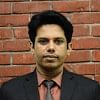
 For all latest news, follow The Daily Star's Google News channel.
For all latest news, follow The Daily Star's Google News channel. 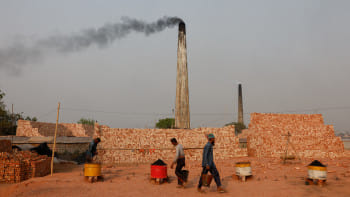
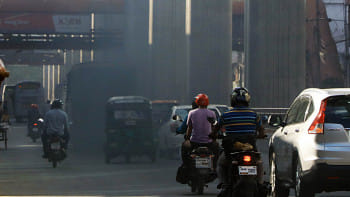


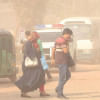
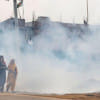

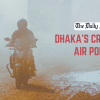
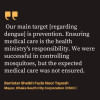


Comments